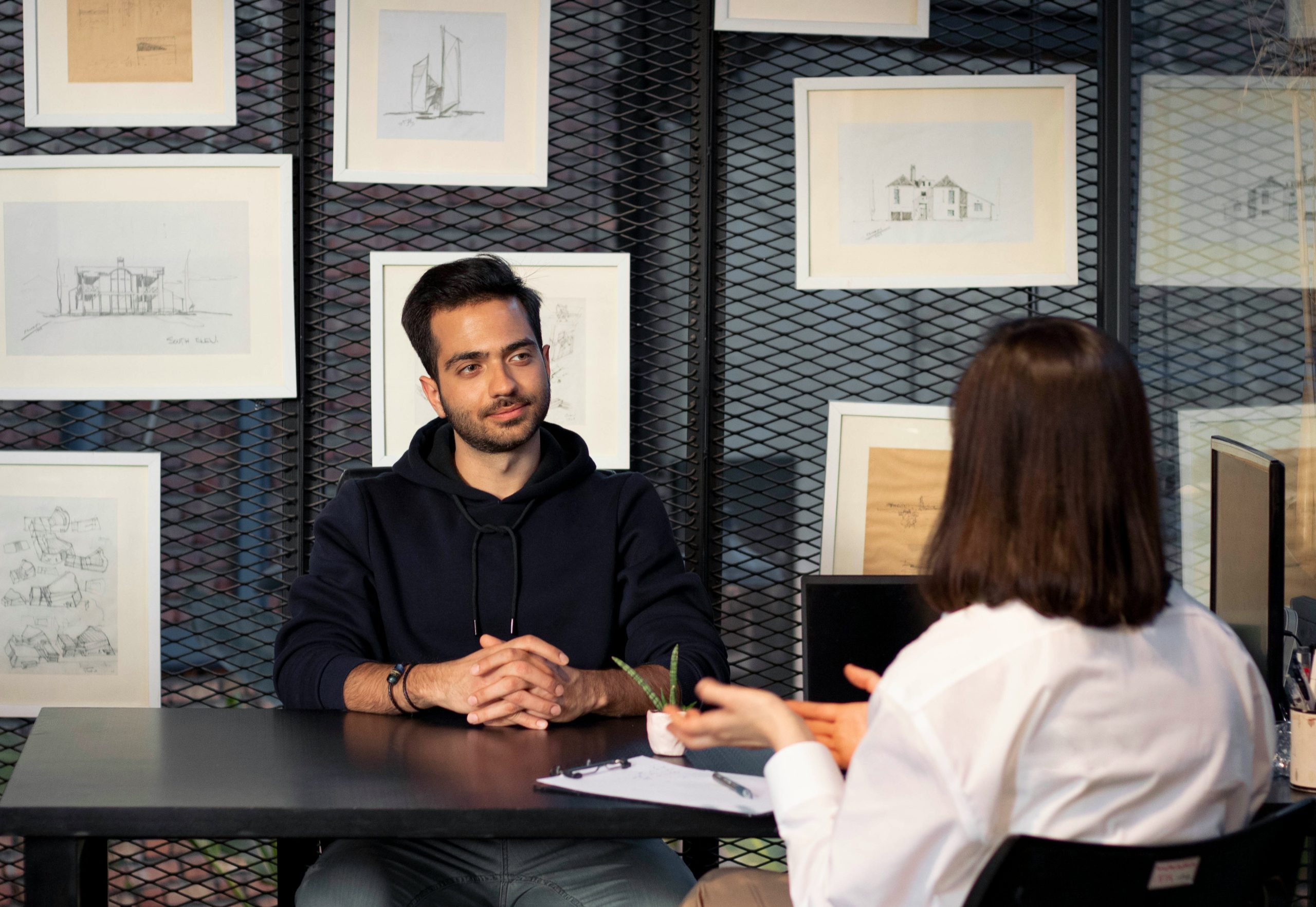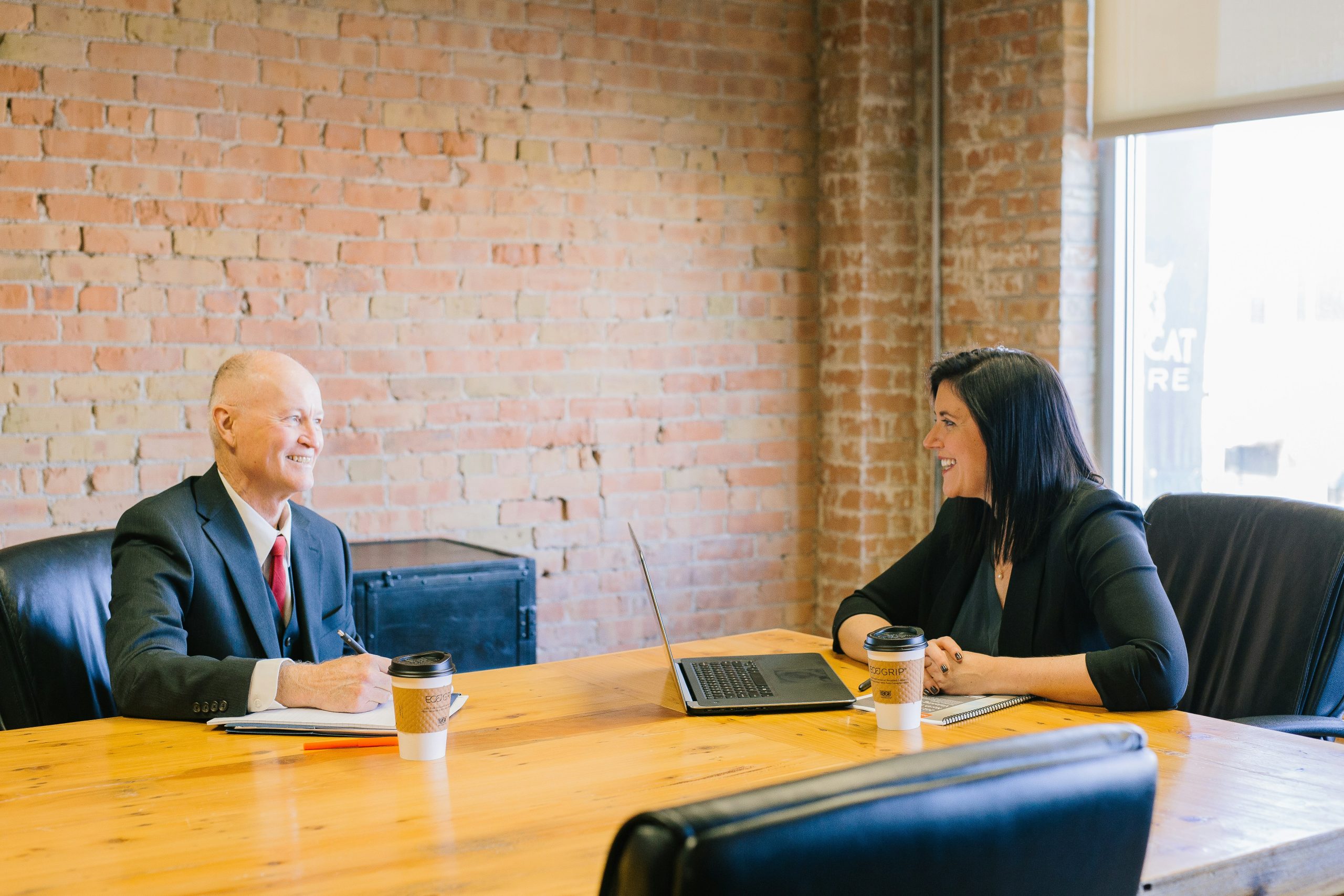
Subscribe for updates
Get talent acquisition best practices, trends, and news delivered directly to your inbox.
By entering your email, you agree to receive marketing emails from JobScore
Looking for tips for interviewers? You’re in the right place. This article will share 18 best practices to help you evaluate and engage candidates during your interview process.
An interview isn’t just about assessing your job candidate — it’s an opportunity to make a positive impression. The job interview is the first substantial interaction many job candidates have with your organization. How you conduct interviews can significantly influence their decision to join your team or take their talents elsewhere. As it stands, half of companies say they’ve lost quality talent due to a poor interview process.
Providing a positive interview experience benefits both the employer and the candidate. It ensures that candidates feel respected and valued, regardless of the outcome. Moreover, a well-structured interview process reflects positively on your company’s brand, making it more attractive to future candidates.
But what exactly constitutes a positive interview experience? And how can you ensure that your process is both efficient and effective?
This guide will share 18 tips for interviewers to help you assess candidate qualifications and leave job seekers with a great impression of your company. Whether you’re a seasoned interviewer or about to conduct your first interview, these tips will help you streamline your process and make better hiring decisions.
1
Align with your hiring team
Sync with your hiring team before you begin interviewing to understand the evaluation criteria, your role in the interview process, and interview questions you should ask.
For example, you may be assessing a candidate’s technical skills or looking for shared values and culture fit. Understanding your role in the interview process helps ensure a comprehensive candidate assessment, while avoiding redundancy.
2
Practice interviewing
Practice your interview skills before you meet candidates; even experienced interviewers can benefit from refining their techniques. Conduct mock interviews with colleagues to sharpen your interview skills and get a feel for the flow and timing of the conversation.
Consider recording these practice sessions to evaluate your tone, pacing, and engagement level. Feedback from peers can also help identify areas for improvement, such as avoiding leading questions or managing awkward silences.
Regular practice ensures you approach real interviews with confidence and professionalism, ultimately creating a better experience for candidates.
3
Be prepared
Set aside 10-15 minutes before each interview to review your candidate’s resume, cover letter, and any other application materials. Familiarize yourself with their background, skills, and experience as they relate to your job description and evaluation criteria.
This not only helps you tailor your interview to the candidate’s specific experiences but helps candidates feel valued.
4
Respect your candidate’s time
Punctuality and time management are critical during the interview process.
Start the interview on time and be mindful of its length. If you anticipate that the interview will run longer than expected, let the candidate know as soon as possible.
Respecting the candidate’s time reflects well on your employer brand.
5
Help your candidates feel at ease
Creating a comfortable environment for candidates is crucial to help them feel at ease, so you can better assess their true potential and fit for your team.
Start by greeting candidates warmly and offering a beverage (for in-person interviews). Then introduce yourself, including your role at the company and within the interview process, and move into in light, casual conversation before diving into the formal interview.
Pay attention to your body language, making eye contact and smiling throughout the interview to indicate that you’re engaged in the conversation.
6
Provide a clear overview of the interview process
Take a few minutes at the beginning of the interview to explain the structure of the interview, what will be covered, and the next steps in the hiring process. This transparency helps candidates feel more comfortable and allows them to focus on showcasing their skills and experience.
7
Sell the candidate on your opportunity
Highlight what makes your organization unique, such as your culture, growth opportunities, and the impact candidates could have in the role. Share success stories, discuss career development paths, and emphasize benefits like work-life balance or innovative projects.
Showing genuine enthusiasm for the company and the role can be contagious, helping the candidate envision themselves as part of your team. Ultimately, selling the opportunity increases your chances of securing top talent.
8
Use a structured interview format
A structured interview format involves asking each candidate the same set of job interview questions in the same order. It’s ok to ask follow-up questions to clarify responses or dig deeper into the candidate’s experience, though it’s important to stay on topic.
Standardizing questions and evaluation criteria can help ensure that all candidates are assessed fairly and given an equal opportunity to succeed. Structured interviews also help you keep the conversation going and help ensure you cover all the topics you’ve been tasked with discussing.
9
Be mindful of unconscious biases
Unconscious biases can significantly impact your hiring decisions, often leading to missed opportunities for both your company and the candidate. This issue is all too common, with one-third of candidates saying they’ve experienced bias in the interview process.
For example, similarity bias can lead you to favor candidates with whom you share similar characteristics, backgrounds, and demographics. The horn effect can lead you to form a negative opinion about a candidate based on a single trait. And recency bias can lead you to favor more recent candidates.
Learning to recognize and counteract your own biases can help create a more inclusive hiring process. Be mindful of these biases by considering whether your view of each particular candidate is based on their merits or a preconceived notion you hold about someone.
10
Encourage a two-way conversation
An interview shouldn’t be an interrogation; it should be a two-way conversation.
Encourage candidates to ask questions about the role, team, and company culture. This not only helps them determine if they’re a good fit for your organization but also shows that you value their input and perspective. If you don’t know the answer to a given question, let them know you’ll find out and follow up with them after the interview.
11
Take notes during the interview
Evaluating your candidates in real-time helps you remember key details when it’s time to compare candidates and make a decision. It also leaves less opportunity for bias and forgetfulness.
Use interview scorecards to rate each candidate against the role’s qualifications, jotting down supporting notes and observations. You can refer back to these notes during discussions with your hiring team and when providing feedback to candidates who didn’t make the cut.
Just make sure you let candidates know you’ll be taking notes so you don’t appear to be distracted.
12
Use active listening skills
Active listening is a vital skill for interviewers, helping you fully understand a candidate’s responses and engage more effectively. By focusing on the candidate’s words, asking clarifying questions, and providing thoughtful feedback, you demonstrate that you value their responses.
Avoid interrupting or letting your mind wander during the conversation. Instead, maintain eye contact, nod in acknowledgment, and summarize key points to ensure understanding. Active listening not only builds rapport but also allows you to uncover deeper insights into the candidate’s experiences, skills, and motivations, leading to more informed hiring decisions.
13
Avoid making snap judgments
It’s easy to form a first impression of a candidate within the first few minutes of an interview, but it’s important to avoid making snap judgments. Give candidates the opportunity to fully showcase their skills and experiences before forming an opinion. This approach leads to more accurate and fair assessments.
14
Consider the candidate’s potential, not just their past
While a candidate’s past experience is important, their potential to grow within your organization is equally crucial. Look for signs of adaptability, willingness to learn, and problem solving abilities. Candidates who show potential can often grow into roles and bring fresh perspectives to your team.
15
Give candidates some grace
Remember that interviews can be nerve-wracking, that things don’t always go according to plan, and that you’re evaluating job skills — not interview skills.
While it’s important to evaluate candidates critically, it’s equally vital to be empathetic and give candidates some grace. If a candidate stumbles over a question, give them time to collect their thoughts or rephrase it in a way that might help them respond more effectively. If they arrive late to an in-person interview or a child pops up in the background of a video interview, let them know you understand that things happen. And if they don’t smile or avoid eye contact, keep in mind that it doesn’t necessarily mean they’re not interested or engaged in the conversation.
A candidate that doesn’t present well in the interview might still be a great fit for the job once they settle into the role. Evaluate them holistically, rather than focusing on minor hangups that don’t relate to the role.
16
End the interview on a positive note
Leave a favorable impression on candidates by ending the interview on a positive note.
Thank the candidate for their time, express your appreciation for their interest in the position, and reiterate the next steps. Candidates will appreciate being treated well for the duration of the interview, regardless of the outcome.
17
Provide timely feedback
Whether they’re moving forward in the process or not, candidates are eager to know where they stand. In fact, 83% of candidates want to know as soon as possible when they’re no longer being considered for a job.
Submitting interview feedback in a timely manner enables your team to make faster decisions and get back to candidates sooner. This enables a better candidate experience that improves your employer brand and keeps top talent engaged in your hiring process.
18
Respond to thank you notes
It’s common practice for candidates to write thank you notes to interviewers, expressing appreciation for your time and reiterating their interest in the role.
A quick note back to let them know you enjoyed speaking with them can help you stand out and build a relationship, whether or not they’re hired. This may lead to better working relationships or career opportunities down the road.
Final thoughts on these tips for interviewers
Conducting effective interviews is a critical component of building a strong, cohesive team. By following these best practices, you can ensure that your interview process is both efficient and candidate-friendly, helping you attract and retain top talent.
Remember, the interview isn’t just an assessment tool — it’s also a reflection of your company’s values and culture. By investing in a positive interview experience, you’re not only making better hiring decisions but also strengthening your company’s reputation as a great place to work.



